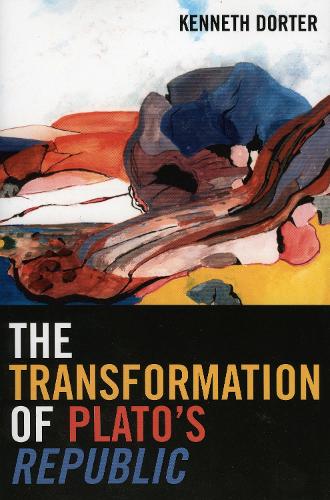
The Transformation of Plato's Republic
(Paperback)
Publishing Details
The Transformation of Plato's Republic
By (Author) Kenneth Dorter
Bloomsbury Publishing PLC
Lexington Books
22nd December 2005
United States
Classifications
Tertiary Education
Non Fiction
Social and political philosophy
Ancient Greek and Roman philosophy
321.07
Physical Properties
Paperback
408
Width 161mm, Height 228mm, Spine 31mm
590g
Description
Author Ken Dorter, in a passage-by-passage analysis traces Plato's depiction of how the most basic forms of human functioning and social justice contain the seed of their evolution into increasingly complex structures, as well as the seed of their degeneration. Dorter also traces Plato's tendency to begin an investigation with models based on rigid distinctions for the sake of clarity, which are subsequently transformed into more fluid conceptions that no longer sacrifice complexity and subtlety for clarity. It's the author's claim that virtually every positive doctrine put forward in the dialogue is problematized somewhere else in the dialogue. This accounts for the apparent incoherence among various parts of the Republic. The dramatic changes of style and content after Books 1, 4, 7, and 9 give it an appearance of being a pastiche of material written at different times, as it is often interpreted. Dorter locates an underlying structure that explains these changes. It is widely recognized that the dialogue is organized symmetrically in the form of an arch, with the beginning and end sharing related themes, the second and penultimate sections sharing other related themes, and so on until the forward series and the reverse series meet in the middle of the dialogue. Dorter's original claim is that the symmetrical segments of the arch reflect the levels of the "Divided Line." Dorter contends that the overall organization of the Republic can be seen to illustrate and imitate the philosophers' ascent from the cave, and their subsequent return to it with altered perspectives. This erudite, salient, and expansive new look at Plato's Republic is essential for philosophy, political theorists, and anyone interested in Plato scholarship.
Reviews
...a richly rewarding study that will amply repay the efforts of any reader. Summing Up: Highly Recommended. General readers, lower-division undergraduates through faculty. -- D.J. Maletz, University of Oklahoma * Choice Reviews *
Dorter...emphasizes the overarching unity of Plato's text through a close and often painstaking analysis of its individual sections, devoting special attention to parts where it seems to shift arbitrarily and abruptly from one topic to another. -- Daniel B. Gallagher * The Classical Bulletin *
Dorter's impressive study of Plato's Republic is a comprehensive treatment of the dialogue from beginning to end and helps to resolve vexing and apparently intractable internal contradictions within the dialogue. Dorter argues that Plato often begins with simple models in order to explore them and then transforms them into far more complex and subtle analyses. The attention to the inner development of the argument enables the author to bring to light the dynamic and, ultimately, coherent structure of the work as a whole. The jury commends the book as one of the most significant contributions to Plato's Republic in recent years. It has high praise for Dorter's engaging narrative, which remains centred on the important human questions at stake and in doing so provides a richly rewarding study.. * Canadian Philosophical Association *
Dorter's impressive study of Plato's Republic is a comprehensive treatment of the dialogue from beginning to end and helps to resolve vexing and apparently intractable internal contradictions within the dialogue. Dorter argues that Plato often begins with simple models in order to explore them and then transforms them into far more complex and subtle analyses. The attention to the inner development of the argument enables the author to bring to light the dynamic and, ultimately, coherent structure of the work as a whole. The jury commends the book as one of the most significant contributions to Plato's Republic in recent years. It has high praise for Dorter's engaging narrative, which remains centred on the important human questions at stake and in doing so provides a richly rewarding study. * Canadian Philosophical Association *
Author Bio
Kenneth Dorter is Professor of Philosophy at University of Guelph.
